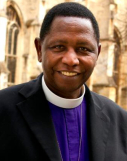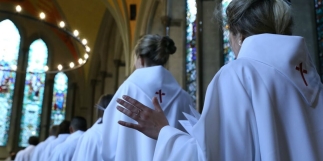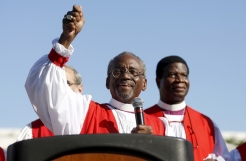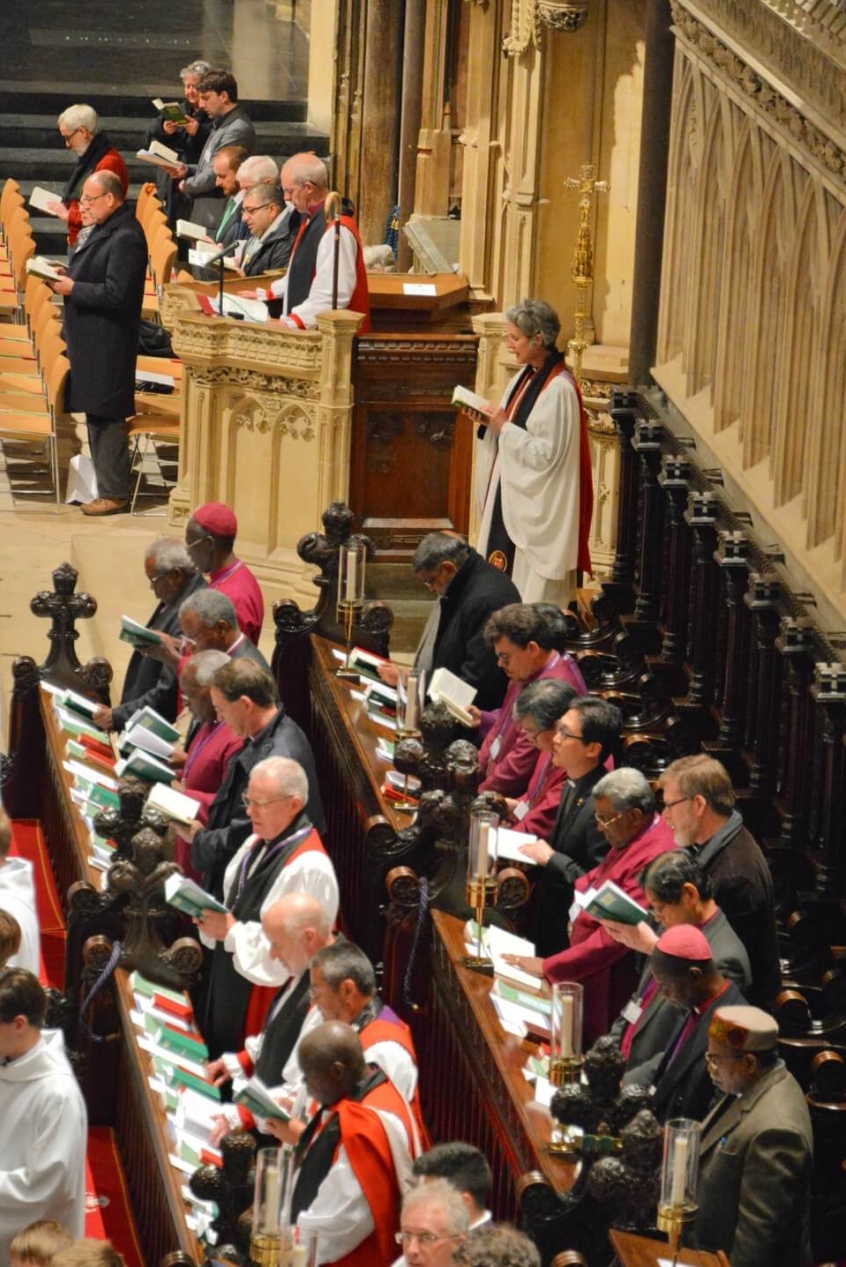
The Primates Meeting at Canterbury yesterday suspended the US Episcopal Church (TEC) from membership for three years because of its endorsement of same-sex marriage. The move was the result of battles within the Communion over the issue which had lasted years, with conservatives particularly from Africa leading the charge for tradition and liberals from North America keen to be more relaxed. However, there's more to it than meets the eye.
1. It's not about gay marriage
Much social media reaction has spun this as a rejection of gay people, if not an actual concession to homophobia. In fact it's about how the Church makes decisions and what holds it together as a Communion. TEC has led the liberal charge; Bishop Gene Robinson became the first bishop to live openly with a same-sex partner in 2003 and last year its General Synod agreed to allow religious services for same-sex couples. When Rowan Williams was the Archbishop of Canterbury he tried desperately to hold the Americans back from unilateral action, without success. His view – and that of the majority of the Primates at Canterbury – was that this was a step that required consensus, which was a long way away.
2. It doesn't condemn TEC's view of human sexuality
The document released yesterday by the Primates was not a condemnation of same-sex marriage or of TEC's view on it. It says that TEC's actions "represent a fundamental departure from the faith and teaching held by the majority of our Provinces on the doctrine of marriage". That's just a statement of fact, as is paragraph 4: "The traditional doctrine of the church in view of the teaching of Scripture, upholds marriage as between a man and a woman in faithful, lifelong union. The majority of those gathered reaffirm this teaching." The Primates Meeting didn't pronounce on TEC's theology but on its "departure from mutual accountability and interdependence".
3. Problems like this go with the territory
The Anglican Communion is a strangely constituted and theologically unsatisfactory creation, reflecting its origins. The Church of England itself is a creation of the State, the product both of high principle (the new insights of the Reformers) and low politics (Henry VIII's desire to control the English Church and cut out the Pope). The Anglican Churches in other countries are all the product of the British Empire, which spread its own brand of Christianity as it expanded. So relations between its constituent parts are complicated by anti-colonialism and wider historical issues. A recurring theme of the same-sex marriage debate among African Christians is that they aren't having white English people telling them what to think.
4. No one's in charge
One consequence of the messy origins of the Communion is that there is no central authority, as there is in the case of Roman Catholicism (though not in Eastern Orthodoxy). There is a historic loyalty to and respect for the English Church and for the office of the Archbishop of Canterbury, but much depends on goodwill.
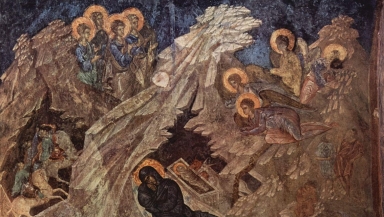
5. It's very complicated
Theologically, the situation is bedevilled by questions of interpretation and by questions of culture (these are not always easy to separate). On interpretation, conservatives argue that TEC – and, indeed, the whole Church – has no authority to ignore the clear teaching of scripture on the subject of human sexuality. By allowing what God has forbidden, they say, they have put themselves beyond the pale of orthodox Christianity. For these conservatives, being in communion with those who have taken this step would be to participate in their sin.
Liberals believe that advances in understanding human sexuality require a reinterpretation of traditional understandings of so-called "clobber texts", or even their outright rejection. In theory, it ought to be possible for both sides to accept the validity of different readings of scripture, even if they profoundly disagree with each other; in practice, human sexuality remains a Communion-breaking issue for Anglicans and others.
6. It's not just about theology
On culture, Western countries have moved towards acceptance of same-sex relationships as normal. Many Christians anxious to make up for their past ill-treatment of gay people and welcome them in Christ's name. An open letter signed by senior clergy and released just before the Primates Meeting made this point forcefully, if not perhaps very helpfully.
On the other hand in many developing countries, particularly in Africa, homosexuality is culturally unacceptable. In Uganda, attempts were made to pass a bill making homosexual acts punishable by death. The Church of Uganda said it was "sympathetic to concerns behind the bill" though against the death penalty. It said in a statement: "As a church, we support Uganda's national sovereignty and our right to self-determination in establishing this law, and will not bow to international pressure to change that part of our culture that aligns with our biblical convictions." Uganda's Archbishop, Stanley Ntagali, was the only Primate to walk out of the Canterbury meeting.
The extreme divergence between the different wings means that each regards the other's views with abhorrence.
8. Church politics matter
Conservatives in the Anglican Communion are represented in two main groupings, GAFCON (Global Anglican Future) and Global South Anglican. GAFCON began in 2008 when, it says, "moral compromise, doctrinal error and the collapse of biblical witness in parts of the Anglican communion had reached such a level that the leaders of the majority of the world's Anglicans felt it was necessary to take a united stand for truth". The 25 members of Global South have similar concerns. These bodies campaign for hearts and minds, just as their opponents do.
9. It's a win for Justin Welby...
The decision to suspend TEC for three years is being seen by those in favour of accepting same-sex relationship as a defeat. Insofar as the Primates did not offer a ringing endorsement of gay marriage, this is true, though this was not what their meeting was about. However, it is insufficiently nuanced. At issue was the decision by TEC to disregard the appeals of the rest of the Communion and go its own way. The perception was inevitably that it believed it had a better theological understanding of the issues than everyone else and did not sufficiently value the bonds of the Communion. So the conclusion of the Primates' statement, referring to the establishment of a task group to "maintain conversation among ourselves with the intention of restoration of relationship, the rebuilding of mutual trust, healing the legacy of hurt, recognising the extent of our commonality and exploring our deep differences, ensuring they are held between us in the love and grace of Christ" is arguably a good result.
10. But maybe not for long
However, the end result might still be the fragmentation of the Communion. TEC has backed itself into a corner by its unilateral action and the GAFCON and Global South Churches are in no mood to compromise.
If the Communion does break up into smaller coalitions of theologically like-minded Churches it would be the end of a tradition which is not, in fact, all that long judged by the whole sweep of Christian history. It might free its constituent parts to be truer to themselves and release energies for mission and service which are at present taken up with what looks like an increasingly futile attempt to maintain a sort of unity.
Follow RevMarkWoods on Twitter.











